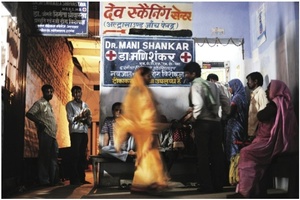Achieving systemic and scalable private sector engagement in tuberculosis care and prevention in Asia
TB is one of the first health arenas in which the issue of private-provider involvement in long-term care is being tackled seriously in low-income countries. The article outlines the current and newer approaches being taken — and the opportunities for more systemic and scalable efforts to engaging private-sector providers in TB control and beyond.
Summary points
- Tuberculosis (TB) is a major public health threat. But worldwide, the majority of people with symptoms consistent with TB start their care seeking in the private or informal sector. These numbers are particularly high in Asia.
- Public-private mix (PPM) efforts have been introduced to reach these individuals, as soon as possible, with quality-assured diagnosis and treatment. Systematic approaches have been designed to reach all provider types. However, PPM schemes struggle to manage the scale of a fragmented and under-regulated private sector.
- Opportunities are arising to introduce more systemic, scalable, and innovative approaches, including social businesses, insurance-based initiatives, intermediary agencies, regulatory regimes, and provider consolidation, with a heavy emphasis on the use of new information technologies.
- These approaches combine the previous work on TB private sector engagement with structural solutions that make health systems function for all patients, regardless of the disease or whether patients seek care in the public or the private sector.
To read the article in full, click here.
Source: PLOS Medicine


